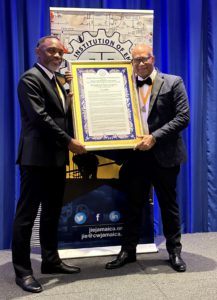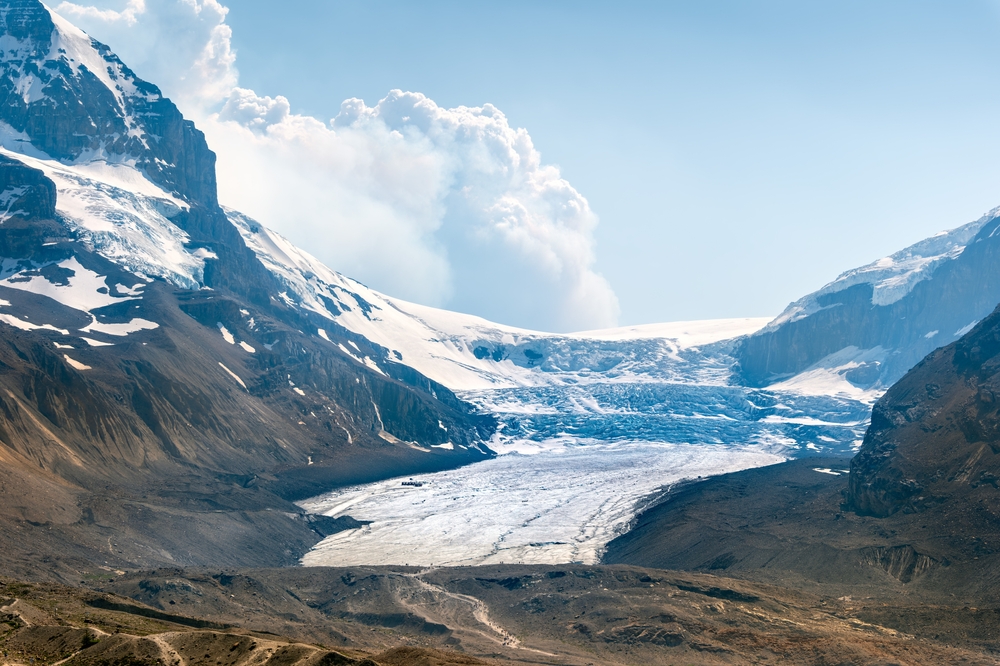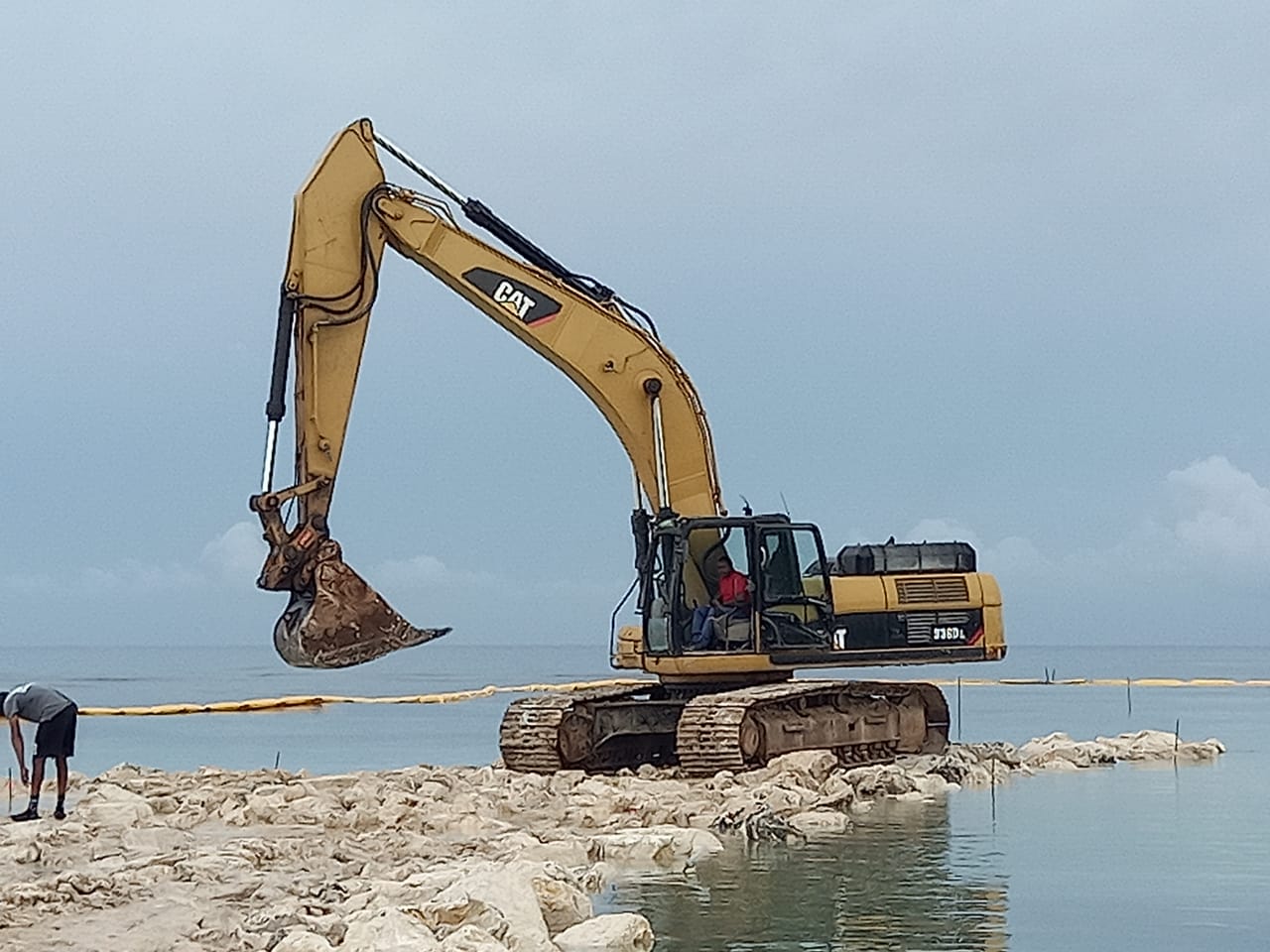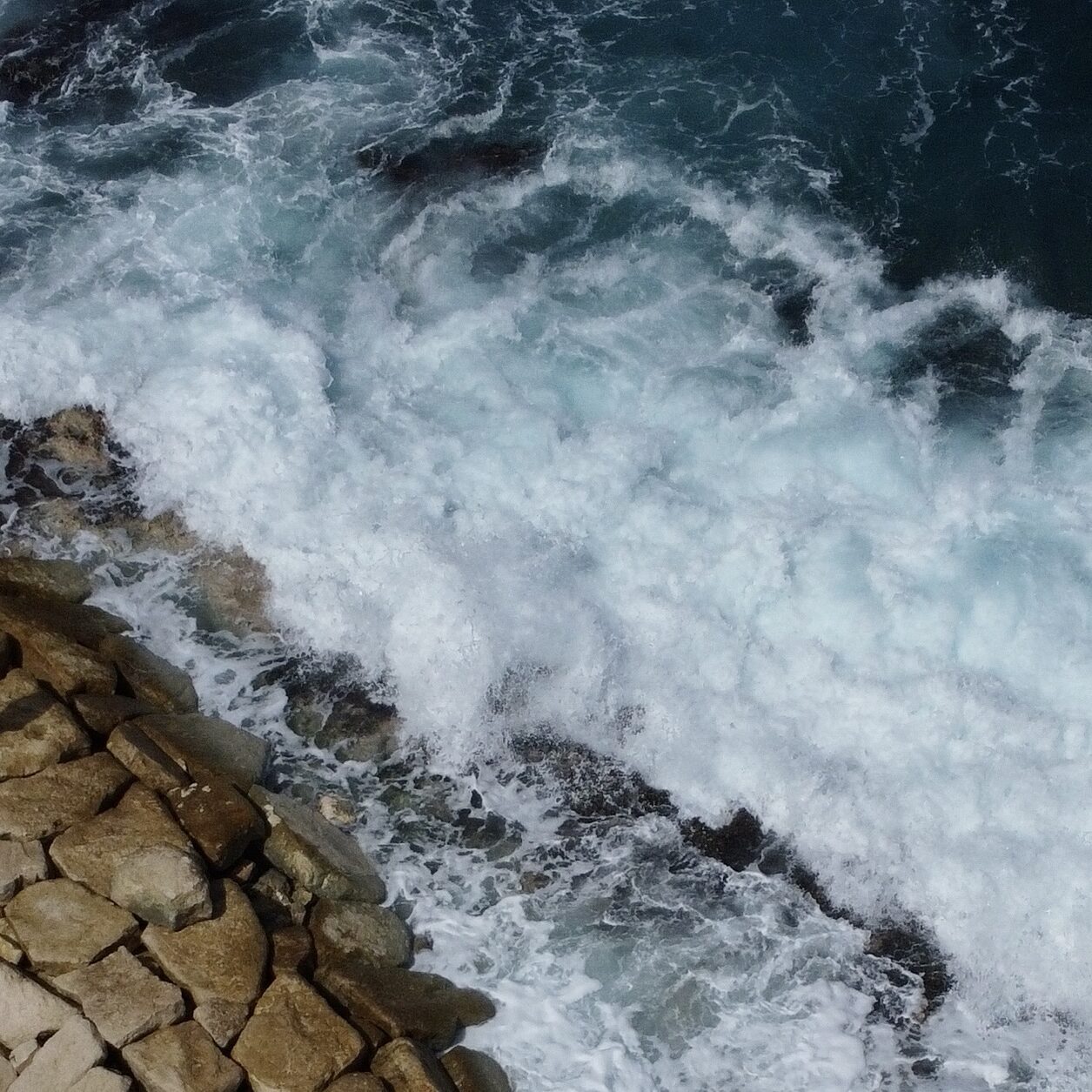It’s been a few months since our last update and a lot has happened since then. Here’s a quick recap of the bigger things.
Jamaica Institution of Engineers
Each year in November the JIE hosts an awards dinner and gala. Engineers from across the country dress up in their finest and gather to mingle, eat, and learn. The theme this year was “Resilience through Engineering – Securing our Future”. We are thrilled to share that our own Dr David AY Smith was bestowed the Award for Excellence in Engineering 2022 this year. His kindness, generosity and fierce desire to share knowledge is a gift we are all grateful for. Read more about Dr Smith’s career and the award here.
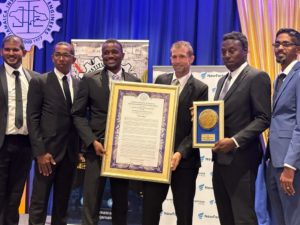 We were also part of the team that brought to life the 2022 Project of the Year, the Port Royal Street Coastal Revetment project. With our partners at S&G Road Surfacing we built a 1km revetment, seawall and boardwalk, installed drains, rebuilt a roadway and even a haul up beach for local fishers. And as if this wasn’t enough of a challenge, we did it during the height of COVID and while training community workers. Kudos to our hardworking construction team, to the engineering design team at CEAC Solutions, and to the visionaries at the JSIF Jamaica Social Investment Fund who made this project a reality.
We were also part of the team that brought to life the 2022 Project of the Year, the Port Royal Street Coastal Revetment project. With our partners at S&G Road Surfacing we built a 1km revetment, seawall and boardwalk, installed drains, rebuilt a roadway and even a haul up beach for local fishers. And as if this wasn’t enough of a challenge, we did it during the height of COVID and while training community workers. Kudos to our hardworking construction team, to the engineering design team at CEAC Solutions, and to the visionaries at the JSIF Jamaica Social Investment Fund who made this project a reality.
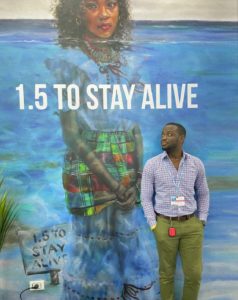
COP27
For the last six years, our Dr David Smith, Director of Quality and Innovation, has been part of the Jamaican delegation at the Conference of the Parties to the United Nations Framework Convention on Climate Change. In November (2022) at the 27th COP we got to organise and host our first side event focusing on the resilience of small island states. Miles Harris, Coastal Engineer (left), was on a panel discussion called “Jamaica’s Pathways to Climate Resilience and a Low Carbon Future”, hosted by the Ministry of Economic Growth and Job Creation. Miles spoke about how the private sector in Jamaica can contribute to a low carbon future.
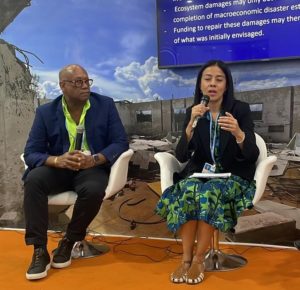
Miles also organised a panel discussion about how nature-based solutions can help make coasts resilient. At that side event Dr Smith spoke about how ecosystem damage can cause major macroeconomic impacts, which are not immediately measurable. This is a clear indication that we need to be able to make accurate assessments of climate change-induced damage to understand the long-term impacts of ecosystem damage so that funding can be sought when it is needed. Read more about that here.
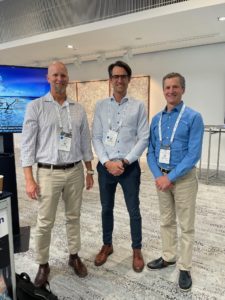
International Conference on Coastal Engineering: a recap by Philip Warner, Director of Operations
After a two-year COVID-19 related delay, the 37th International Conference on Coastal Engineering was finally held in Sydney, Australia in December. More than 600 delegates and presenters gathered to learn, exchange ideas and find solutions to tackle some serious problems facing the world’s coastlines and coastal communities. Much-deserved honours were presented to Jane McKee-Smith and Peter Nielsen, icons of wave modeling and sediment transport. Budding young researchers were also there in abundance presenting some outstanding work in remote sensing and new low-cost field data gathering methods. But most interesting for me was the focus on nature-based solutions, which had several dedicated sessions over the five-day conference.
In photo at left: Edward Albada (Principal, SWI), Kasper Kaergaard (Delft Hydraulics Institute) and Philip Warner.
